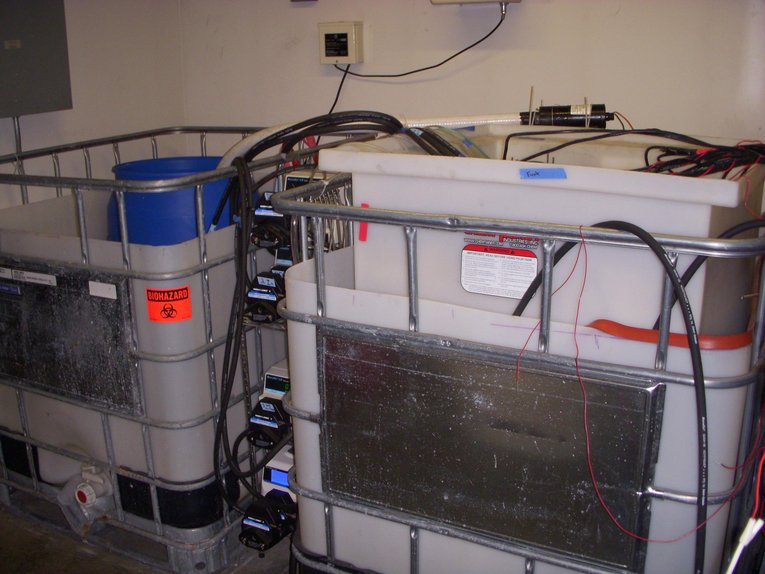A pioneering sewage-powered product that makes electricity and then cleans up the sewage could lead to free wastewater treatment, say scientists. The Microbial Fuel Cell (MFC), which is powered by microbes in sewage, is as compact as a washing machine and could be invaluable in the third-world or drought regions.
The clever device runs on bacteria contained in sewage, the American Chemical Society (ACS) National Meeting, in San Deigo, has been told.
Dr Orianna Bretschger, from the J. Craig Venter Institute, Maryland, USA, and her team have made improvements to one version of the MFC.
Dr Bretschger, told ACS members about the device, saying, "Our prototype incorporates innovations so that it can process five times more sewage six times more efficiently at half the cost of its predecessors.
"We've improved its energy recovery capacity from about two percent to as much as thirteen percent, which is a great step in the right direction. That actually puts us in a realm where we could produce a meaningful amount of electricity if this technology is implemented commercially. Eventually, we could have wastewater treatment for free."
Various steps are involved in treating wastewater today that split solids and liquids in sewage and then clean up the water. Settling tanks, macerators and filters and chemical and biological processes can all be used in the process that consume up to 2% of America's total energy, it has been estimated.
Fuel cells traditionally use a flow of oxygen and hydrogen to generate constant electricity and so then obtain drinkable water.
MFCs work in a similar way, but use organic material, such as bacteria in sewage to break down the organic materials. As the microbes digest the organic material, negatively-charged electrons are produced - the basis of electricity.
The research team has even discovered some microbes that digest problematic pollutants including toluene and benzene that can be present in the sewage.
The MFC is made up of a sealed unit where the microbes are grown on a film over an electrode that collects the electrons. At the same time, positive protons flow through a membrane to another unsealed unit. Here, microbes on another electrode mix oxygen with the protons and electrons and create water or other chemicals.
The microbial fuel cell consists of a sealed chamber in which the microbes grow in a film on an electrode, which receives their electrons. Meanwhile, positively-charged units termed protons pass through a membrane to a second, unsealed container. In that container, microbes growing on another electrode combine oxygen with those protons and the electrons flowing as electricity from the electrode in the sealed chamber, producing water or other compounds like Hydrogen peroxide.
The device also removes organic material from sewage and prevents bad microbes that can spread diseases.
At the moment, the team's MFC can remove around 97% of organic materials, but it would need to reach 99.99% for the water to be clean enough to drink, says Dr Bretschger.
Since unveiling the first MFC in 2011, its handling capacity has risen from 20-100 gallons. Using polyvinyl chloride framework and electrodes made from graphite instead of titanium, they have halved costs. The MFC now works out at around $150 (£94) per gallon, but it is hoped that the cost can be further reduced to maximum of $20 (£12) a gallon so it can complete with other methods.
The MFC currently converts around 13% of the slurry's energy into electricity, but with improvements, larger devices could run conventional sewage treatment units, Dr Bretschger believes.
The study has received financial support from the San Diego Foundation Blasker Science and Technology award and the California State PIER EISG program.










